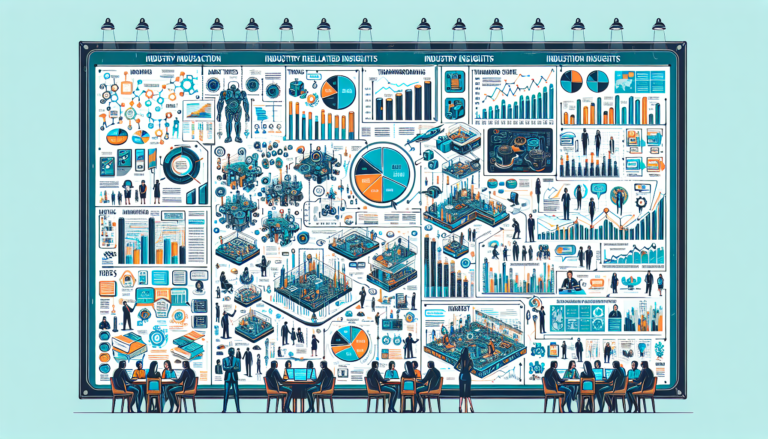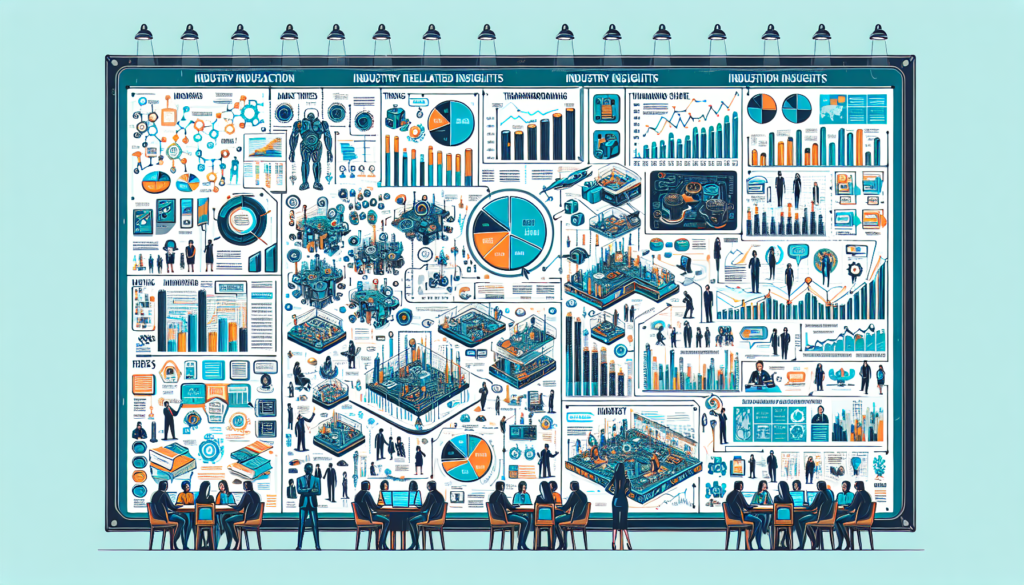Understanding Blockchain Technology
Blockchain technology, at its core, is a decentralized digital ledger that records transactions across many computers. This ensures that the recorded transactions cannot be altered retroactively without the alteration of all subsequent blocks and the consensus of the network. The technology’s security and transparency features make it a powerful tool for various applications, particularly in supply chain management. By providing a tamper-proof, transparent, and real-time record of transactions, blockchain addresses many inefficiencies and vulnerabilities typically found in traditional supply chain systems.
The Challenges of Traditional Supply Chain Management
Traditional supply chains often suffer from a lack of visibility, inefficiencies, and a high degree of complexity. With multiple stakeholders involved—from manufacturers and suppliers to distributors and retailers—information can become siloed, leading to delays and miscommunication. Additionally, issues such as counterfeit goods, inventory inaccuracies, and delayed shipments can plague these systems, resulting in increased costs and diminished trust among stakeholders.
The reliance on paper-based processes and disparate systems creates further complications. In many cases, the tracking of goods is manual and cumbersome, making it difficult to gather accurate data. This lack of real-time information can lead to overstocking or understocking, which directly impacts a company’s bottom line. By addressing these challenges, blockchain technology promises to redefine how supply chains operate.
Enhanced Transparency and Traceability
One of the most significant advantages of blockchain in supply chain management is its ability to enhance transparency and traceability. Each transaction made on the blockchain is recorded in a way that is accessible to all authorized participants. This means that every step in the supply chain—from raw material sourcing to the final sale—is documented and easily traceable.
For industries like food and pharmaceuticals, where safety and quality are paramount, this level of transparency is crucial. For instance, if a foodborne illness outbreak occurs, companies can quickly track back through the supply chain to identify the source of the contamination. This capability not only helps in mitigating risks but also builds consumer trust, as customers can verify the provenance and quality of the products they purchase.
Improving Efficiency Through Smart Contracts
Smart contracts are self-executing contracts with the terms of the agreement directly written into code. These contracts automatically enforce and execute transactions when certain conditions are met, eliminating the need for intermediaries. In supply chain management, smart contracts can streamline processes by automating tasks such as payment approvals, inventory restocking, and compliance checks.
For example, a smart contract could automatically release payment to a supplier once goods are delivered and verified against the agreed-upon terms. This not only speeds up transactions but also reduces the likelihood of disputes, as all parties have access to the same information in real time. By minimizing manual processes and enhancing accuracy, smart contracts significantly improve operational efficiency.
Reducing Costs and Risks
Blockchain technology has the potential to significantly reduce costs associated with supply chain management. By enhancing visibility and automating processes, companies can cut down on administrative overhead and minimize the risks of human error. Furthermore, the decentralized nature of blockchain reduces reliance on third-party intermediaries, which can often add costs and complexity to transactions.
Additionally, the enhanced security features of blockchain help mitigate risks associated with fraud and counterfeiting. Since every transaction is recorded and immutable, it becomes exceedingly difficult for malicious actors to manipulate the data. This added layer of security is particularly valuable in industries where counterfeit goods can pose serious risks to consumers.
Boosting Collaboration Among Stakeholders
Collaboration is essential for a successful supply chain, yet traditional systems often create barriers between stakeholders. Blockchain technology fosters an environment of collaboration by providing a shared platform where all parties can access the same information. This transparency encourages trust and cooperation, as everyone involved in the supply chain can see the same data.
For instance, manufacturers can communicate more effectively with suppliers regarding inventory levels and demand forecasts. Distributors can provide real-time updates on shipping status, allowing retailers to adjust their operations accordingly. By breaking down silos and promoting open communication, blockchain enables a more agile and responsive supply chain.
Real-World Applications of Blockchain in Supply Chain Management
The adoption of blockchain in supply chain management is already taking shape across various industries. Companies such as Walmart and IBM have collaborated on initiatives to utilize blockchain for tracking food products from farm to table. This ensures that products are safe and allows for quick responses in the event of contamination.
In the diamond industry, Everledger uses blockchain to create a digital ledger of a diamond’s provenance, helping to combat the trade of conflict diamonds. By providing a transparent and immutable record, consumers can make informed purchasing decisions and support ethical sourcing practices.
Similarly, in the pharmaceutical sector, companies are leveraging blockchain to combat counterfeit drugs. By tracking the entire lifecycle of a medication, stakeholders can ensure that products are legitimate and safe for consumption.
Overcoming Barriers to Adoption
Despite the promising benefits of blockchain technology, several barriers remain to its widespread adoption in supply chain management. One significant challenge is the lack of standardization across the industry. Different companies may use various blockchain platforms, which can complicate interoperability. Developing universal standards and protocols is essential for creating a cohesive ecosystem.
Moreover, there is a need for education and training on blockchain technology. Many supply chain professionals may not fully understand how blockchain works or how it can be applied to their operations. Investing in training programs and resources will be critical to empowering stakeholders to harness the potential of blockchain effectively.
Another barrier is the initial investment required for implementing blockchain solutions. While the long-term benefits can outweigh the costs, especially in terms of efficiency and risk reduction, companies may be hesitant to make the upfront investment. As more successful case studies emerge, however, the business case for blockchain will become increasingly compelling.
The Future of Blockchain in Supply Chain Management
As the supply chain landscape continues to evolve, the role of blockchain technology is expected to grow significantly. With increasing consumer demand for transparency and ethical sourcing, companies will need to adopt solutions that align with these expectations. Blockchain offers a way to meet these demands while enhancing operational efficiency and reducing costs.
The future may also see the integration of blockchain with other cutting-edge technologies such as the Internet of Things (IoT) and artificial intelligence (AI). For example, IoT devices can provide real-time data on the condition and location of goods, while AI can analyze this data to optimize supply chain operations. When combined with blockchain, these technologies can create a more intelligent and responsive supply chain ecosystem.
Conclusion: Embracing the Blockchain Revolution
As the supply chain industry faces numerous challenges, embracing blockchain technology presents a significant opportunity to unlock value and drive transformation. By enhancing transparency, improving efficiency, and fostering collaboration, blockchain is poised to revolutionize how supply chains operate. As companies navigate the complexities of adopting this technology, those who embrace it early will not only gain a competitive advantage but also contribute to a more resilient and sustainable supply chain future.














